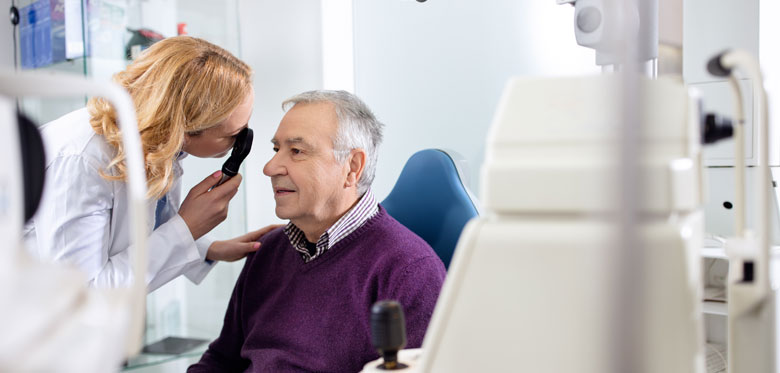Acanthamoeba Keratitis (AK) is a rare parasitic eye infection from a certain type of amoeba which is a single-celled organism. It starts by affecting the outermost layer of the cornea and as the infection extends deeper, it will cause loss of sight.
Research shows that 85% of AK cases are associated with contact lens users and particularly the risk of developing AK is associated with combining factors of contaminated lenses, contaminated water and eye injuries. The amoeba can easily get in through a small gap in the cornea surface where your corneas are injured, usually through contact lenses, fingernails, plant material, dirt or soil.
Symptoms and diagnosis
People who are diagnosed with AK would usually suffer from the following symptoms:
- Eye pain (sometimes severe);
- Feeling like something’s stuck in your eye (foreign body sensation), but washing your eyes does not help, and you can‘t see any foreign material there;
- Watery eye (epiphora);
- Light sensitivity (photophobia);
- Eye redness or irritation;
- Corneas that appear cloudy, dirty or that have a ring-shaped area on their surface; and/or
- Blurred or clouded vision (usually happens with severe or advanced cases).
The above symptoms may not remain constant but usually come back and forth.
AK is difficult to diagnose and an initial misdiagnosis happens in about 75% - 90% of cases because it often has the same symptoms as those of the common viral or bacterial eye infections and the diagnostic tests or equipment are not available outside major medical centres.
The main diagnostic tests for AK involve taking samples of corneal tissue through scrapping or culturing to check for acanthamoeba DNA which is called the “PCR test”. If the PCR result is negative, a small corneal biopsy may be considered.
Management and treatment
AK cannot be treated with antibiotics because it is not a common bacterial eye infection. The typical treatment for AK is with antiseptic eye drops including PHMB, Chlorhexidine, Brolene or Hexamidine, which have an anti-amoebic effect.
In addition to anti-amoebic eye drops, anti-inflammation and painkilling medications may also be needed. In the UK, around 10% of AK patients have other bacterial eye infections as well and they will require antibiotics as well as the anti-amoebic eye drops. If the patient has developed severe inflammation or scleritis (inflammation of the white part of the eye) steroid eye drops may be prescribed. Nonetheless, the use of steroids in the treatment is controversial and strongly discouraged by many clinicians because steroids can increase the pathogenicity of Acanthamoeba cysts with increased numbers of trophozoites through excystment and proliferation that would lead to an increased length of treatment. Therefore, extreme cautions must be exercised in case where steroids are used.
Around 40% of AK cases do not respond to medication alone and in this case surgical interventions including epithelia tissue removal, tissue grafts or corneal transplant could be considered.
Complications and negligence
AK can cause severe complications including glaucoma, iris atrophy (shrinking or moving out of place), cataracts & chronic defects in the cornea’s outermost layer and increased risks of vision loss if the adequate treatments are not undertaken in a timely manner.
To this end, failing to consider and investigate the diagnosis of AK, if the patient is displaying the above mentioned symptoms, could cause the patient to miss the ‘treatment window’ for AK, subsequently causing an increased risk of blindness.
The use of steroid medication to reduce inflammation also could make the condition worse and lengthen the prognosis as explained above. Therefore, extra caution must be exercised whilst undergoing examination and prescribing medication because many symptoms of AK are the same as those of the normal bacterial eye infections.
If you or a loved one has suffered an injury due to the negligence of a medical or health professional then we may be able to help you pursue a claim for compensation. Our leading team of experts are on hand to offer advice, so please get in touch with us on 0161 696 6165 or complete our online enquiry form and we will contact you directly.




Comments